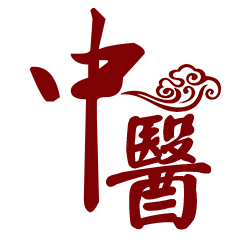A change in the relative power of anti-pathogens and pathogens may affect disease properties (excess or deficiency) or disease development (alleviation or aggregation).
Sometimes, deficient anti-pathogens are the major disease cause, and they induce deficient syndrome. Sometimes, excessive pathogens are the major disease cause, and they induce excessive syndrome.
(1)Excessive syndrome is designated by its situation as the most excessive pathogen. The struggle between anti-pathogens and pathogens manifests visible symptoms. Typically, cases include the primary or middle stage of six external pathogenic invasions, or the retention of phlegm, pathogenic fluids, blood, food, damp, etc.
(2)In deficient syndrome, the deficient anti-pathogen is showing up. Pathogens have been completely or mostly eliminated, or the pathogens are not strong enough to injure the anti-pathogens. The limited struggle between anti-pathogens and pathogens manifests as hypofunctioning of internal organs. Typically, cases include damaged anti-pathogens recovering from an external pathogen invasion. It may also be a chronic deficiency syndrome, Qi exhaustion induced by severe or chronic disease, massive sweating, major diarrhea, or bleeding-induced deficient Qi, blood, and body fluid.
(3)The combined excessive–deficient syndrome may a rise from chronic disease with lingering pathogens and damaged anti-pathogens due to untimely or improperly treated excessive disease. It may also result because anti-pathogens are not able to dispel pathogenic products such as pathogenic fluid, damp, phlegm, or stagnated blood.
(4)Deficient and excessive syndromes may transform into each other when their relative power changes. For example, if an excessive syndrome with normal anti-pathogens receives improper or untimely treatment, pathogens gradually consume anti-pathogens, which may damage Zang–Fu organ functions. When these functions are damaged, the excessive syndrome changes into a deficient syndrome. On the other hand, when a deficient syndrome without pathogens receives improper or untimely treatment, Zang–Fu organ functions may gradually decrease, causing impaired flow of Qi, blood, and body fluid. Then, stagnated Qi, blood, phlegm, and pathogenic fluid or damp are retained, and the deficient syndrome is transformed into an excessive syndrome.

